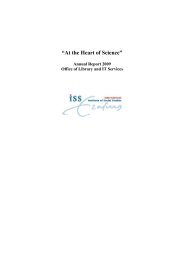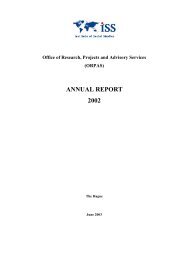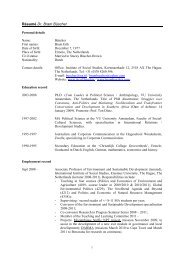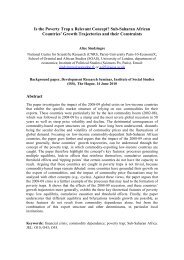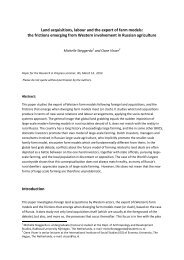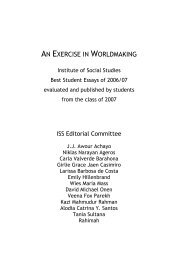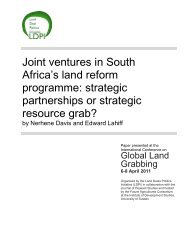AN EXERCISE IN WORLDMAKING 2009 - ISS
AN EXERCISE IN WORLDMAKING 2009 - ISS
AN EXERCISE IN WORLDMAKING 2009 - ISS
Create successful ePaper yourself
Turn your PDF publications into a flip-book with our unique Google optimized e-Paper software.
14 Unpacking the Politics of Veil in the Context of Bangladesh 169<br />
Western discourse of “modernity” and by linking themselves with such<br />
discourse they try to be a part of the “superior Western culture”. In contrast,<br />
the rigid positions of the fundamentalist Islamists are also based on<br />
the Orientalist construction of superior versus inferior culture, a clash<br />
between ‘Islam’ and the ‘West’. Thus, both are radically influenced by a<br />
fixed knowledge, have no consideration towards difference, do not consider<br />
history and its particular context, and fall in the dangerous dichotomy<br />
of “superior” versus “inferior culture”. Such modernity and antimodernity<br />
projects of both groups create unnecessary complexities in<br />
societies and fail to capture the realities of social life. To avoid such<br />
complexities we need to learn to respect cultural differences; definitely<br />
other knowledge is possible and we have to admit that. To conclude, I<br />
would like to quote de Sousa Santos et al. (2007: xlvii), who bring the<br />
hope of living together with negotiated differences:<br />
The epistemic diversity of the world is potentially infinite. There is no ignorance<br />
or knowledge in general. All ignorance is ignorant of a certain<br />
knowledge, and all knowledge is the overcoming of a particular ignorance.<br />
There are no complete knowledges.<br />
REFERENCES<br />
Abu-Lughod, L. (2006) The Muslim Women: The Power of Images and the Danger of<br />
Piety. [Online] Available http://www.eurozine.com/articles/2006-09-01-<br />
abulughod-en.html Accessed on 14th June, <strong>2009</strong>.<br />
Abu-Lughud, L. (2002) Ethics Forum: September 11 and Ethnographic Responsibility<br />
Do Muslim Women Really Need Saving? Anthropological Reflections on Cultural Relativism<br />
and Its others, American Anthropologist 104(3): 783-90.<br />
Abu-Lughod, L. (1998) ‘Introduction: Feminist Longings and Postcolonial<br />
Conditions’ in L. Abu-Lughod (ed.) Remaking Women: Feminism and Modernity<br />
in the Middle East, pp. 3-33. Princeton, New Jersey: Princeton University<br />
Press.<br />
Abu-Lughod, L. (1991) ‘Writing Against Culture’ in G.F. Richard, Recapturing<br />
Anthropology: Working in the Present, pp. 466-79. Santa Fe, USA: School of<br />
American Research Press. [Online] Available at: http://xcelab.net/rm/wpcontent/uploads/2008/09/abu-lughod-writing-against-culture.pdf<br />
Accessed<br />
on 18th June, <strong>2009</strong>.<br />
Azim, F. (2005) ‘Feminist Struggles in Bangladesh’, Feminist Review (80): 194-<br />
197.<br />
Butler, J. (2008) ‘Sexual politics, torture, and secular time’, The British Journal of<br />
Sociology 59 (1): 1-23.



